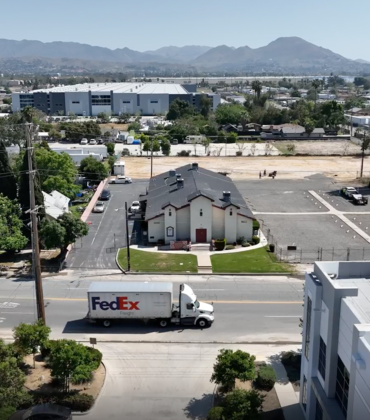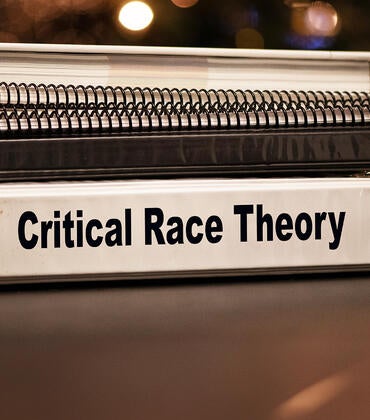
April 12, 2024
For fast access to experts, TEXT or call the 24-hour-experts hotline at 951-312-3049, or email news@ucr.edu
Experts on artificial intelligence
Zizhong (Jeffrey) Chen, Associate Professor, Computer Science & Engineering
AI applications often involve lots of computations. Zizhong Chen is finding ways to speed up AI applications using high performance computing technologies. https://www.cs.ucr.edu/~chen/index.html zizhong.chen@ucr.edu
Vagelis Hristidis, Professor, Computer Science & Engineering
His work correlating Twitter and financial data in 2012 was featured by The New York Times, Forbes and Yahoo, among others. https://www.cs.ucr.edu/~vagelis evangelos.christidis@ucr.edu
Eamonn Keogh, Professor, Computer Science & Engineering
Databases, Data Mining, and Artificial Intelligence. His technology for detecting farm pest insects based on wingbeat frequency has appeared in the New York Times, National Geographic, Fast Company, and many others. https://www.cs.ucr.edu/~eamonn eamonn.keogh@ucr.edu
Evangelos Papalexakis, Assistant Professor, Computer Science & Engineering Data mining, machine learning, and data science research. His work to develop an algorithm that can detect fake news stories has been covered in Digital Trends, Yahoo, and he has helped explain social media news filtering algorithms in The Guardian. https://www.cs.ucr.edu/~epapalex/ evangelos.papalexakis@ucr.edu
Ravi Ravishankar, Associate Dean of Research and Graduate Education Computer Science & Engineering
Cybersecurity Databases, Data Mining, and Artificial Intelligence. chinya.ravishankar@ucr.edu
Amit Roy-Chowdhury, Chair and Professor, Electrical and Computer Engineering. Computer vision, image processing, and statistical pattern recognition and signal processing. His research group is involved in research projects related to camera networks, human behavior modeling, face recognition, and bioimage analysis. Has explained facial recognition algorithms in CNET. https://vcg.engr.ucr.edu; amitrc@ece.ucr.edu
Mariam Salloum, Lecturer – PSOE, Computer Science & Engineering. Databases, Data Mining, and Artificial Intelligence https://profiles.ucr.edu/mariam.salloum mariam.salloum@ucr.edu
Christian Shelton, Professor, Computer Science and Engineering. Specializes in statistical machine learning. Machine learning is the academic discipline of studying algorithms that take past experience (data) and use it to improve future performance on a wide variety of tasks in a wide variety of ways. His primary focus is on developing and analyzing algorithms that infer, predict, or otherwise quantify events and processes that evolve over time. https://www.engr.ucr.edu/people/christianshelton.html cshelton@cs.ucr.edu
Vassilis Tsotras, Professor, Computer Science & Engineering Database management, access methods, evolving databases, temporal databases, spatiotemporal databases, spatiotemporal knowledge management, spatiotemporal change management, sensor data, querying complex objects, evolving systems design, multi-version schema evolution, querying trajectories of physical artifacts, data dissemination, FPGA-based publish/subscribe systems, querying spatiotemporal patterns using accelerators, semantic spatiotemporal queries, scalable data management (ASTERIX), Big Active Data management. http://www.cs.ucr.edu/~tsotras vassilis.tsotras@ucr.edu
Shaolei Ren, Associate professor of electrical and computer engineering. Associate Professor Shaolei Ren of the University of California, Riverside, is a leading international expert on these growing environmental costs. Since last year, he has published papers in scientific journals that were the first to quantify AI's water, carbon, and pollution footprints. Furthermore, Ren and his team at UCRs Bourns College of Engineering have conducted groundbreaking research on how water consumption from large data processing centers disproportionately impacts regions where water is scarce. For example, several tech companies are planning to build large-scale data centers in Arizona, a desert region that relies on declining water flows from the Colorado River. Ren and his team have further outlined how data processing can be spread to various locations around the world so that corresponding environmental impacts are distributed more equitably. They are currently developing algorithms to fairly distribute AI's energy load and corresponding environmental costs across different regions. The work by Ren and his team has had international impact, prompting calls to address AI's environmental costs from entities such as the United Nations Educational, Scientific and Cultural Organization (UNESCO), the World Health Organization, Organisation for Economic Co-operation and Development, World Economic Forum, Government of Canada, Government of The Netherlands, Innovate UK, and Stanford Human-Centered AI. Ren's work has been covered in The Associated Press, The Wall Street Journal, Nature, Bloomberg, CNBC, CBS, Fortune, The Hill, CBC (Canada), Financial Times (UK), The Guardian (UK), The Telegraph (UK), The Times (UK), and more than 1,000 other news media and websites. He is an ideal expert source for reports on big tech's energy demand and environmental impacts. Contact: shaolei.ren@ucr.edu



